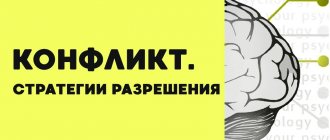School is a wonderful time in the life of every child and teenager who is growing up and developing. Of course, it is complicated by performing various tasks, one of which is writing essays. These works are most often found in final grades (9th and 11th). Since many students choose social studies to take the State Exam or Unified State Exam, it is imperative to prepare for an essay in this subject.
Therefore, now the focus of our attention is one of the main topics in social science: “One is born as an individual, one becomes an individual, one defends individuality.” To cope with writing a paper, you need to carefully study the theoretical part of the issue, be savvy in all concepts and have the ability to argue your thoughts. Let's try to cope with the task.
Problems and meaning
First of all, let’s read into the topic “One is born as an individual, one becomes an individual, one defends individuality.” The problem of this topic is what we need to identify.
“The main problem of this topic is the development of man and his formation in society.”
You can also express this idea in other words or add something else, but the problem expressed should be close to the example. The most important thing is that when working with this topic, you yourself fully understand its meaning.
Our next task is to reveal the meaning and theoretical justification of Asmolov’s words: “One is born an individual, one becomes an individual, one defends individuality.”
Interaction between the individual and the group
The relationship between an individual and a group is always two-way. On the one hand, a person performs certain work for society and contributes to solving common problems. On the other hand, society also influences a person in some way, helping him satisfy his needs - for self-expression, respect, love, security, etc. Of course, this is all in the ideal case. In reality, the relationship between the individual and society is often of a conflicting nature. It has been noticed that in “good groups”, in which relationships between a person and society are built on mutual respect and trust, people even live longer and get sick less.
The relationship between an individual and a group can be cooperative, merging, or conflicting. In cooperation, the individual retains relative independence, but cooperates fruitfully with society, realizing that the group’s goals do not contradict his own. Merger is a closer interaction when a person and a group feel like one and can no longer exist without each other; a person builds his goals based on the goals of society, subordinates his interests to the interests of the group; the group also takes responsibility for caring for the person, solving not only their own problems, but also his personal problems. Such a group recognizes a person not as a performer of a specific task, but as a completely devoted person to it.
Basic Concepts
In order to cope with the task, it is necessary to appeal to the social science concepts specified in the topic:
- Individuality.
- Personality.
- Individual.
They will be included in the very disclosure of the meaning of the topic and should be harmoniously included, and not as separate subparagraphs.
There are no strict restrictions on the structure of the work, but you must understand that chaotically scattered parts of the essay will not help to fully reveal the topic. Therefore, you must remember that each previous part must be logically connected with the next one.
Text of the book “Unified State Exam 2021. Social studies. Algorithm for writing an essay"
Individual
“One is born as an individual, one becomes an individual, one defends individuality” (A. G. Asmolov)
The statement I have chosen is related to the problem of human nature, various aspects, characteristics of a human being, human nature. Since ancient times, people have wondered who we are, what we are like, how we are different and how we are similar. The search for answers to these questions comprises the human essence.
Modern Russian psychologist A.G. Asmolov states: “ One is born as an individual, one becomes an individual, one defends individuality.”
In other words, his position can be formulated as follows: every person from birth is an individual, then in the process of development he becomes an individual, and he has to defend and prove such a characteristic as individuality to society. I agree with the position of A.G. Asmolov and also believe that while these characteristics are unified in each person, they develop differently, appear at different stages of life, and have their own characteristics.
To substantiate my point of view, I propose to consider theoretical arguments. According to modern social scientists, human nature is made up of the unity of social and biological qualities, which is manifested in the unity of such characteristics as the individual, personality and individuality. Each of the characteristics reflects a certain part of human essence.
Every person is an individual from birth. An individual is understood as the totality of his genetically determined, biological and innate qualities. An individual is, on the one hand, an individual, and on the other hand, a typical representative of the species Homo Sapiens.
One becomes a person in the process of socialization (the process of mastering skills, knowledge and experience in the life of society, becoming a member of it), development, entering the world of social connections and interactions. That is, one can define personality as a set of socially significant and socially conditioned qualities of a person. In other words, we can only call a socially mature person a person.
In psychology and social science, individuality is understood as the uniqueness of a person’s qualities, both biological (the color and shape of the eyes, skin color), and acquired in the process of life, social (certain skills, talents). That is, individuality is a set of unique, inimitable qualities inherent in every person. Society strives for unification, but individuality, on the contrary, demands self-expression and protests against unification. However, in its zeal and protests, any individual must take into account the rest of the world.
In addition to theoretical justifications, specific actual examples can be given. For example, Erich Fromm wrote in one of his works that a member of a primitive, primitive society, who is naturally an individual and in some sense a person, does not have a sense of individuality. That is, for a primitive society, the predominant feeling is a sense of identity, which can be expressed by the formula “I am we.” In other words, it is the duty of every person who considers himself developed to defend his individuality.
Let's consider the problem using the example of a historical figure. Napoleon Bonaparte, who was never distinguished by outstanding physical qualities, who was from birth far from the most beautiful representative of the human race, became the brightest historical figure. And he considered one of the main goals to be the defense of individuality.
Another example can be considered one of the most famous composers in the world - Ludwig van Beethoven. He was born into an ordinary Austrian family and was no different from his peers. From childhood they tried to teach him music, but at first he showed no hope. But still he managed to develop his musical inclinations into real talent. At the same time, he also had his own strong social and political position; for example, he refused to dedicate his Third Symphony to Napoleon. And, of course, it would be simply stupid to deny that he managed to defend his individuality.
You can also give an example from personal experience. My peers are now just at the age when personality is being formed, when a person becomes a full-fledged member of society. It is at this age that a person comes to a clear understanding that he simply needs to develop. Also in this age period, there is an undoubted need to defend your individuality and show the whole world what you are worth.
Thus, after analyzing the theoretical side of the issue and citing arguments from different areas of life, we can come to the conclusion that, indeed, endowed from birth with only a basic set of biological qualities and inclinations of abilities, a person develops, becoming a personality.
And only after this can we talk about the need to defend one’s individuality, to prove to society one’s uniqueness and irreplaceability. Human needs
“The needs for attention, recognition, self-expression are the universal needs of every individual” ( B. D. Parygin )
The statement I have chosen touches on the problem of the significance of social needs associated with the life and relationships of people in society. It is also impossible not to notice that all these needs are associated with self-realization. And this is undoubtedly important, because these needs are as universal as biological ones.
The founder of social psychology B. D. Parygin states: “The needs for attention, recognition, and self-expression are the universal needs of every individual.”
In other words, the needs of a spiritual orientation, such as the need for attention, recognition, self-expression, are present in every person, are natural and inalienable. This class of needs can also be called needs associated with a person’s self-realization in society. It is difficult to disagree with this point of view, because it is this class of needs that makes a person human.
To confirm the chosen point of view, the following theoretical arguments can be given. Need can be defined as a state of dissatisfaction, need, which each of us strives to overcome. Needs are what drive human behavior and give him motivation for activity. There are many ways to classify human needs, but, by and large, they all agree on one thing: the division of all human needs into primary and secondary, or lower and higher. The lower, or primary, include biological, physiological needs that are common to humans and animals. These are needs such as the need for food, water, and safety. Higher or secondary needs, in turn, are divided into subclasses (for example, in A. Maslow’s classification system of human needs). The main of these subclasses are existential (determine a person’s life in the social sphere), prestigious (associated with achieving status, public recognition) and ideal, or spiritual (associated with finding the meaning of life, the desire for beauty, etc.). Thus, the need for attention and recognition can be classified as a person's prestigious needs, while the need for self-expression represents an ideal or spiritual need.
In addition to theoretical justifications, specific factual arguments can also be given. An example is a prominent historical figure - Adolf Hitler. Many psychologists subsequently argued that this man was a bundle of complex mental disorders. In particular, Erich Fromm explained Hitler's absurd desire for such a strange satisfaction of the needs for attention, recognition and self-expression as an extreme manifestation of narcissism. Thus, this person can serve as an exaggerated example of the desire to satisfy this layer of problems.
But people did not always understand the universality of these needs. In the ancient world there was a class of people who simply did not have the ability or right to satisfy these needs. We are talking about slaves. Undoubtedly, like all people, they sought to satisfy these needs, for which they received only beatings and ridicule of their overseers.
And finally, an example from literature can be the hero of A.P. Chekhov’s play “The Cherry Orchard,” Petya Trofimov, an eternal student. His whole story was an attempt to express himself through his knowledge and theories. However, in most cases, attempts to satisfy the need for attention and recognition from other people remain unsuccessful.
You can also give an example from personal experience. Even based on my limited life experience, I can say that these needs are extremely important for every person. After all, it is not enough to simply achieve success; it is important that it be appreciated and recognized by society. Even a small child runs to his mother to show her the Easter cake he has made for the sole purpose of receiving well-deserved praise - recognition.
Thus, after analyzing the theoretical aspect of the problem and providing factual support, we can conclude that, indeed, such prestigious and spiritual needs as the need for attention, recognition and self-expression are an integral part of the human being.
Family
“In family life, one must take into account the thoughts, beliefs, feelings, aspirations of loved ones” ( V. A. Sukhomlinsky )
The statement I have chosen concerns the formation of a family structure, the importance of family for a person. This issue is extremely important in the modern world, since society is now rapidly changing, while traditional ties are losing their importance. The family was, is and will be one of the most important social institutions. The behavior of people in a family in relation to each other is one of the factors in the formation of personality; the harmony and inner peace of a person depend on it. It is very important that it remains a fundamental value.
V. A. Sukhomlinsky, teacher and writer, believed that in family life it is necessary to take into account the thoughts, beliefs, feelings and aspirations of its members. Thus, Sukhomlinsky considers it necessary to have mutual understanding, mutual acceptance, and support for each other by people connected by blood ties. Indeed, it is impossible to disagree with his opinion. I also believe that it is very important that family members understand each other and take into account the thoughts and beliefs of their relatives.
The institution of the family can be considered as a small group, connected primarily by everyday relations, households, marriage or kinship. The main tasks of the family in society are the regulation of gender relations, the birth of physically healthy children, the formation and education of the younger generation, emotional release, physical, economic and psychological protection of family members, the establishment of close economic relations - living together, housekeeping. The emotional and psychological function emphasized by Sukhomlinsky is especially important. Family is a refuge from problems and everyday troubles. A person should associate home and receiving help with it. Sukhomlinsky draws our attention to the fact that in order for a family to function normally, we must try to understand loved ones, be able to limit our own interests and restrain our emotions for the sake of others. Many children grow up to be selfish people who believe that everyone owes them everything. Such a person will not be able to feel comfortable in society, at school, or at work. The family is a unit of society projected onto it.
Family relationships in people's understanding have always been very complex and responsible. Since ancient times, in proverbs, sayings, and poems, much attention has been paid to the relationship between spouses, raising children, and organizing home life. Psychologists see the causes of family troubles in a group of factors: 1) extremely harsh paternal discipline, 2) insufficient maternal supervision (indifference, carelessness), 3) insufficient paternal affection, 4) insufficient maternal affection, 5) lack of cohesion in the family. So what is needed to avoid problems in family life, so that children grow up happy and parents lead a calm life? It is necessary that each family member can listen to the other, so that no one seeks to establish his own dictatorship, and that the goals and desires of each person are perceived with understanding.
In literature we can see a lot of examples of how tyranny or misunderstanding lead to the collapse of families, to the misfortune of their members. In the story “The Thunderstorm” by A. N. Ostrovsky, Kabanikha forced everyone to obey herself, decided everything for others, forced them to live by their own rules, without taking into account the wishes of their loved ones. Thanks to this, no one loved her, she drove her own son’s wife to suicide.
In the modern world, we are also faced with how important it is to always listen and hear loved ones, to always help them, to take into account thoughts and aspirations. There is an atmosphere of mutual respect and understanding in my family, I know that my parents will always support me in new endeavors and give useful advice. I behave in exactly the same way towards them.
Thus, we understand that Sukhomlinsky, with his statement, confirmed the truism about how important it is to take into account your family, their beliefs, and dreams. Without this, family life will lose all joy, and a person will live in constant stress.
“The family will always be the basis of society” (O. de Balzac)
The statement I have chosen examines the role of the family in society throughout human history. Perhaps it was thanks to her that the state and law were formed and function successfully. The problem of family well-being and security is very important, since the family is the basis of society and its social structure. Pope Pius IX said that “the family is more sacred than the state.”
French writer Honore de Balzac believed that “the family will always be the basis of society.” With this statement, the author identifies the family with the skeleton, with the foundation of the entire society, moreover, Balzac does not set any time limits, but convinces us that generations will pass, and society will still be based on the family.
I cannot but agree with the author’s opinion and also think that society originates in the family. What kind of individuals the family raises as the original unit of society, such will be the society. For the family gives birth not only to a person, but also to a citizen.
First, let's explore the very concept of family. A family is a small group based on marriage or consanguinity, the members of which are connected by a common life, interests, mutual help and responsibility. The family is a micromodel of a large society; it concentrates the totality of social relations. Moreover, the family, as the most ancient social institution, is the most effective means of preserving the culture of the people and transmitting heredity. The position of the family serves as an indicator of the state of society.
One of the most important functions of the family is reproductive, that is, reproduction in the number of children of the number of parents, and educational: influence on the formation of the personality of the child, as well as adult family members. Another important function of the family is economic. It consists of managing the household, family budget, distribution of labor, guardianship of minors and the elderly. And finally, the family performs a recreational function. That is, it creates a sense of security and psychological comfort among family members, organizes family leisure and recreation.
The specifics of the modern family in Russia are determined by four main features. Firstly, a modern family is a union based on love, emotional acceptance and support. Secondly, there was a transition from the extended family to the nuclear family (parents and children). This situation is the result of the realization of the needs for freedom and independence of young people. The next feature is that the modern family system is quite open - today it is easy to get married and just as easy to get divorced. Legal, ethical, religious and socio-psychological barriers to both the creation and dissolution of marriage are reduced to a minimum. And finally, parenthood plays a special role in the modern family. A fundamentally new, humanistic position is treating the child as an individual deserving respect and the right to free choice. Today, emotional and spiritual closeness is of particular importance in parent-child relationships.
Let us give some examples that prove the role of the family in the formation of personality, and therefore society. In L. N. Tolstoy’s novel “War and Peace” in the Rostov family, everything was built on sincerity and kindness, so the children - Natasha, Nikolai, Petya, Sonya - became highly moral and cultured people, with a broad soul and a kind heart. In the Kuragin family, where career and money decided everything, both Helen and Anatole grew up to be immoral egoists.
The influence of family on the formation of personality can be examined using the example of American President F. D. Roosevelt. He was born into a rich and respectable family. Roosevelt traveled with his parents throughout Europe, so he had a good command of foreign languages. He also received a good education at home. Roosevelt's wife, Eleanor, always supported her husband in everything and played a significant role in his political career, especially after 1921, when he contracted polio and was no longer in a wheelchair. The family of aristocrats raised a well-mannered, educated and ambitious person. His wife and children created a warm atmosphere of love and mutual assistance, which helped him achieve success in the political arena and even help the country overcome the economic crisis.
The family plays a huge role in the life of society. During the period of creating the foundations of the Russian federal state, designed to guarantee a decent life and free development of people, the legal foundations of state family policy were laid. This is also evidenced by the state's social programs aimed at preserving the family, increasing childbearing, stimulating large families, and 2008 in Russia was declared the year of the family. A full-fledged healthy family should be a fundamental national interest.
My family always supports me in everything. We spend our leisure time together, my parents help me solve problems and get out of difficult situations. Family brings fullness of life and happiness.
So, the family is an integral unit of society.
Not a single nation, not a single somewhat civilized society could do without a family. The foreseeable future of society is also unimaginable without family. The family produces the most important thing for the existence of civilization - man. Capabilities
“Ability cannot arise outside of the corresponding specific activity” ( B. M. Teplov )
The statement I have chosen is related to the role of activity in the development of human abilities, in the formation of personality. This topic is extremely relevant in the modern world and is one of the traditional ones, since the development of an individual is influenced by many factors. When considering human nature and talking about innate and acquired qualities, we must necessarily touch on those internal and external forces that help people express and realize themselves, and find their place in the world. We must be sensitive to the issue of human development.
The Soviet psychologist, Boris Mikhailovich Teplov, believed that no ability could arise outside of the corresponding specific activity. Thus, Teplov believes that inclinations can only be developed in the process of socialization, accompanied by human activity. I completely and completely agree with the author of the statement and also believe that no inclinations can develop on their own, that they need to be cultivated in oneself, and this is possible only in the process of activity and interaction with society.
Activity is understood as a special form of activity inherent only to humans. The activity is purposeful. The goal of almost any activity is the design, the creation of man himself. Activities can be educational, work and play. Educational activities give a person new knowledge about the world and allow him to become familiar with the experience of past generations. Work (and at the initial stage of life - play) develops socially significant qualities of a person and influences the socialization of the individual.
By abilities, scientists understand the innate characteristics of a person that allow him to successfully engage in any activity. Abilities have an innate foundation - inclinations. But it is far from a fact that, having these inclinations, a person will not destroy them and will develop them. Laziness, unwillingness to work on oneself, to listen to oneself and the advice of loved ones and teachers can destroy all the makings in the bud. Great responsibility for turning inclinations into abilities lies with adults. The most important abilities of people are mental. Their combination and skillful application in different situations is called intelligence. There are also musical, pedagogical, organizational, literary, choreographic, and artistic abilities. In addition to abilities, people also have talents. Talent is a very high level of development of a person’s abilities, manifested in the results of his activities. Each person is responsible for his own abilities and talents. Genius is the highest form of development of any talent. Geniuses bring something new into people's lives. Thus, we understand that any inclination is transformed into ability in the course of any work.
In a person’s external environment, any positive factor that influences the development of abilities is very important. Sergei Petrovich Kapitsa was the son of a Nobel Prize laureate; he grew up in a family of scientists, which ultimately allowed him to engage in research himself and make many discoveries in the field of physics. We see how much the family influences the socialization of the individual and its development.
In the modern world we can also encounter similar examples. My cousin's grandfather was a composer who taught his son the art of playing the piano. Living in an intelligent family, a person simply could not grow up to be anyone else. School also plays a very important role. If teachers pay a lot of attention to a person’s individual characteristics and encourage him to do what he does best, then his inclinations will develop positively.
Thus, we understand that B.M. Teplov was absolutely right in his statement. After analyzing the theoretical material and examples, we can conclude that the ability really cannot manifest itself just like that, on its own; in order for it to develop, it must be applied in the appropriate activity.
Disclosure of meaning and theoretical justification
As psychologist Asmolov said: “One is born as an individual, one becomes an individual, one defends individuality.” What is the difference between these concepts? First of all, an individual is any person who differs from other creatures in higher development. From this we conclude that from birth we are individuals. This concept is characteristic of every person.
With personality, everything is different. Personality is a set of moral, ethical, mental and social qualities that a person develops in himself with the process of growing up.
Individuality is the highest degree of human development. An individual can be called someone who has many different personal qualities, a person who differs from the general mass of people in character, uniqueness and interests.
“One is born an individual, one becomes an individual, one defends individuality. The meaning of this statement is that we are all individuals. As we grow older, we become individuals. But in order to become an individual, you need to try and prove that you have your own character, opinion and interests and are able to defend them.”
Individual, personality, individuality - differences
The concepts of personality, individuality and individual cannot be identified; they are different. It is important to know what a word means so that you can use it in the correct context. The division according to Ananyev B.G. is in the table below.
| Concept. | Brief definition. |
| Individual. | An individual organism, a representative of the human race, humanity. Considered primarily from a biological point of view. |
| Personality. | A reflection of human social nature, a complex of developed habits, preferences, experience and knowledge. |
| Subject of activity. | Manager of active activities. A person developing in his profession, his own business. Who uses his efforts purposefully. |
| Individuality. (individual + personality + subject of activity) | A bearer of qualities, a set of properties and characteristics of a person that make him unique and inimitable among other people. |
Were you aware of the differences in the meaning of the terms? Share your thoughts in the comments.
Argumentation
“One is born an individual, one becomes an individual, one defends individuality” is an essay for which it is not so easy to find arguments. But let's try.
“Why is each of us an individual? It's simple - pay attention to the newborn baby. Yes, all children have different appearances and even some habits and habits, but otherwise they are all the same. Kids do not yet know how to build long logical chains, they are not yet able to express their thoughts in words - they are only at the stage of development. Another thing is personality. People become individuals at completely different ages.
For example, young Dmitry Donskoy, already at the age of 11, went to the Golden Horde for a label, and at this age he began his struggle for the title of Prince of All Rus'. Indeed, by the age of 11 the boy had many personal qualities.”
In the same way, you can continue to reason further on the topic “One is born as an individual, one becomes an individual, one defends individuality.” The essay may contain arguments from history, literature, media, or personal life.
“In order to be individual, you need to prove it. An example of individuality is the great artist Vincent Van Gogh, whose paintings still delight and fascinate today, casting aside all doubts about the individuality of this person.”
In your essay, you can also give negative examples if they are more familiar to you.
“Not every person can become a person and an individual. Nowadays, there are still many criminals who cannot be called individuals, because many of them have distorted moral values and principles. But a person without these norms cannot be called a person.”
Without knowing specific examples, you can come up with them yourself by citing specific cases.
Social individual
A person does not immediately become a social individual. He is born a defenseless and helpless creature. The sociality of the individual is achieved at the expense of society. First, these are his parents and immediate relatives. Then this field expands (kindergarten, school, media, friends, teachers, neighbors).
The child acquires social skills of the society in which he develops. That is why different peoples differ in their views on life, traditions, and cultural trends. This separates a particular people from other nationalities.
How does socialization of an individual occur?
In order to socialize, it is important for a child to go through a number of steps:
- Socialization in the family. Parents, relatives or people replacing them tell the child how to behave correctly, what qualities he needs to have, and how to act in a given situation. Often, the socialization of an individual at the family level occurs in the form of imitation of others. An individual copies the behavior of adults and can absorb both positive qualities and those that are not.
- Socialization in children's educational institutions. Educational institutions include kindergartens, schools, clubs and additional education sections. These social institutions help a person learn to communicate and interact with other people. They give him new knowledge, introduce the individual to who success and failure are. It's a tougher environment. She is not as supportive of the individual as his parents and relatives.
- Socialization among peers. It is interaction with peers that makes a child more socialized. By communicating with them, the individual learns about those areas that he cannot discuss with his parents. This allows a person to develop, modify and adjust his own worldview.
What else do you think influences the socialization of an individual? Share your opinion in the comments.
The video talks about the socialization of an individual from the point of view of social science.
Conclusion
Thus, you will be able to fully reveal the problems and meaning of your work on the topic “One is born as an individual, one becomes an individual, one defends individuality.” The essay should contain approximately 150 words - this is enough to present all the necessary thoughts and arguments, you can also give more examples, but you should not exceed the 350 word limit. If you do everything correctly, you will receive a high score for your work.
Development of the individual
Various factors participate in the formation and development of an individual:
- Biological. The body develops its physiological and anatomical properties.
- Psychological. A person undergoes psychological changes, the structure of his psyche becomes more diverse.
- Personal. The personal development of an individual occurs under the influence of society in the process of his upbringing, learning, and adaptation.
Thank you for reading the material. Repost and share the article on social networks. It will help you better understand the terminology and never again confuse concepts that are similar at first glance.
Personality
Personality is a concept used primarily in psychology. This is a subject with self-awareness, emotional experiences and the ability to know. Personality is formed exclusively in the process of socialization, and its basic properties are manifested in interaction with other individuals. From a psychological point of view, one of the key personality properties is the ability to play a certain role that meets the expectations of others.
The main characteristics of a personality are its potentials:
- creative – the ability to purposefully create material and intangible values;
- cognitive – the ability and desire to learn;
- communicative – the ability to interact with other individuals and develop through this interaction, while maintaining one’s own identity;
- value - a system of values, ideals, aspirations and beliefs acquired by an individual in the process of socialization;
- artistic – the level of artistic needs of the individual, manifested both in the creation and consumption of works of art.
The basis for personal development is considered to be her ability to control her life, make strong-willed decisions and act rationally, guided by logic and common sense, and not by immediate desires. A person who copes well with this is called a strong personality.
Obviously, a five-year-old child cannot be a strong personality. He still does not understand why and for what he should deny himself momentary pleasures. In addition, he has not yet developed responsibility, since he has no idea how serious the consequences of a seemingly harmless act can be.
It also happens that a fully grown person is not a mature person. He submits to desires and cannot subordinate them to his will. However, he is not necessarily such a rake. This may be a decent person with a good education and job, whose personality is still in the process of formation.
Personality formation is a very long process that includes 4 key elements:
- choice of social roles and related functions.
- awareness of the rules of behavior in force in society.
- relationship building and other social skills.
- the ability to make decisions and be responsible for their consequences.
A person who is a mature personality is easy to notice. As a rule, he is quite independent and does not worry about what people think about him , so he does not try very hard to meet the expectations of others. But this does not prevent him from behaving with dignity. Thanks to this combination, others often choose such individuals as role models.
Human
As we have already found out above, a person is a general concept that denotes a social being with consciousness and intelligence. Man was formed as a result of evolutionary development, as well as a number of socio-historical processes. Using this term, we usually mean a representative of the human race with all the qualities and characteristics inherent in the biological species Homo Sapiens (reasonable man).
From a psychological point of view, the term “human” combines biological and general social characteristics, as well as the ability to engage in various activities specific to a given biological species.
From a biological point of view, a person is a creature that differs from other mammals in such features as:
- upright posture and special body structure;
- using articulate speech to communicate;
- the presence of consciousness, the ability to understand the essence and cause of various phenomena;
- the ability to meaningfully and purposefully perform complex work in order to obtain a certain result (and not obeying instincts, as happens in animals);
- the ability to create and use tools.
From a philosophical point of view, a person is an integral system that has physical and mental principles, determined genetically. This is the unity of biological, social and spiritual qualities.
To remember how the concept of “person” differs from the concept of “personality”, you should understand one simple thing: a newborn child is already a person, since all the elements of human nature are inherent in him. At the same time, he becomes a person later - in the process of socialization, when he acquires his own individuality.
What is the difference between an individual and an individual?
Yes, these are words with the same root, but they mean two completely different concepts. The first term is applicable to absolutely any person who lives among people, is socialized in society and is not only a biological species, but also a representative of humanity. The second definition, in turn, presupposes the path of development of the individual.
Often, most people consider themselves individuals only because they are trying to resist the world around them. They are truly different from everyone else, but as long as there are not too many of them. Therefore, only one that is invented independently and not copied from another can be considered an individual solution.











